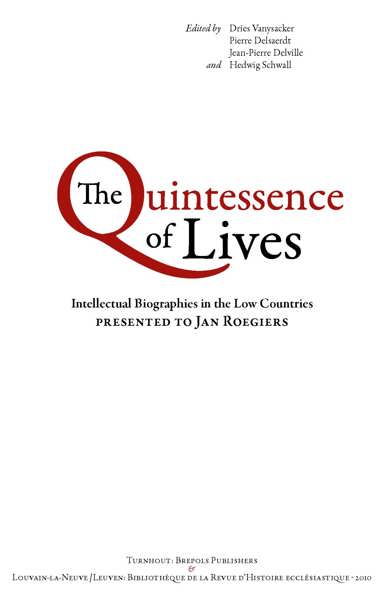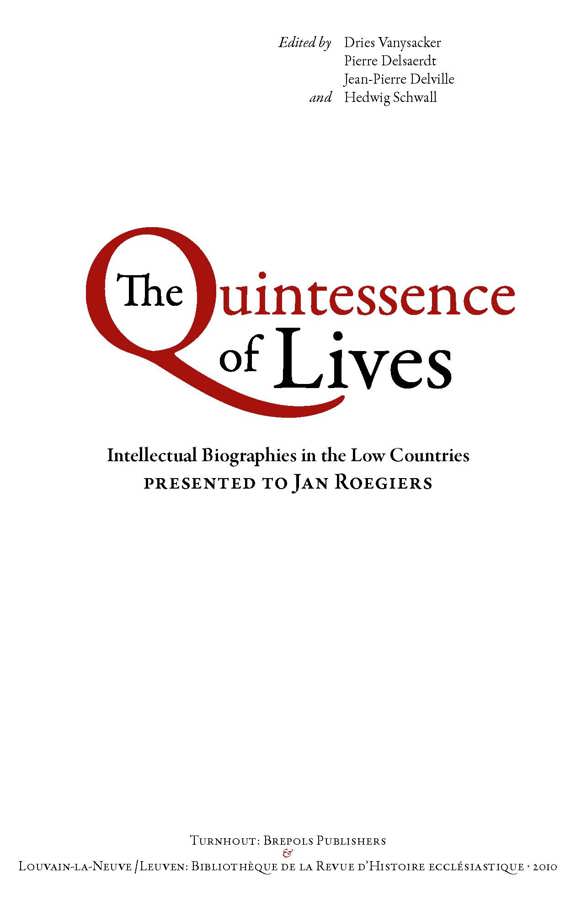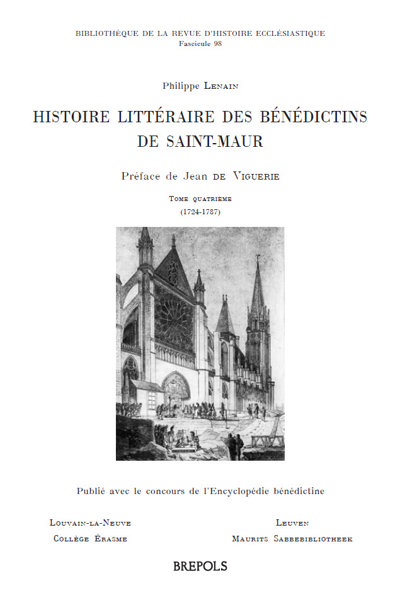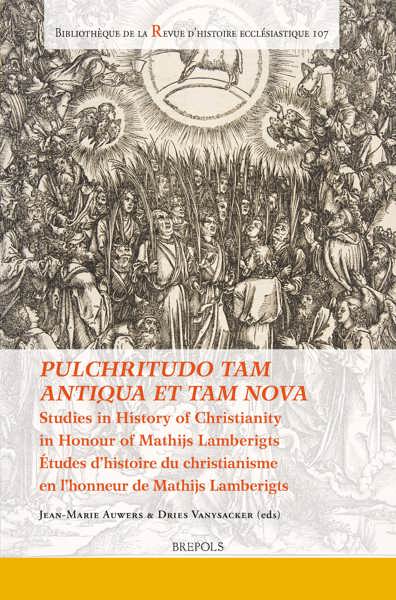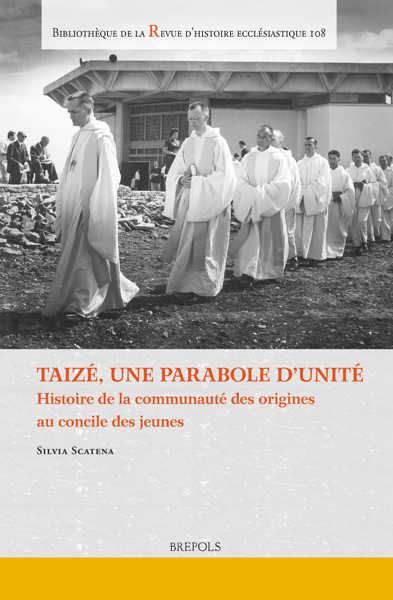
The Quintessence of Lives
Intellectual Biographies in the Low Countries presented to Jan Roegiers
Pierre Delsaerdt, Hedwig Schwall, Dries Vanysacker, Jean-Pierre Delville (eds)
- Pages: 513 p.
- Size:160 x 245 mm
- Language(s):English
- Publication Year:2010
- € 65,00 EXCL. VAT RETAIL PRICE
- ISBN: 978-2-503-53210-3
- Paperback
- Available
As head librarian and archivist, also in charge of the university’s art collections, Jan Roegiers played a pivotal role in collecting, preserving and making available the documentary and artistic inheritance of the University of Leuven. His main interest is in the intellectual and ecclesiastical history of the Low Countries in the Modern period, but his curiosity also made him venture far beyond the boundaries of the research group in which he was active as professor ordinarius. Whatever the topic, all his texts show how much he valued the craftmanship of historiography, his great consideration for the wider context which codetermines the acts and writings of committed intellectuals, and his relish for erudition. These same features are variously reflected in the biographical contributions in this volume. They illustrate how social and cultural trends in the surrounding environment affect the actual course of action chosen by individuals who helped shape the intellectual life of our region. Academically trained lay people and clerics, as well as academics from many disciplines are to be encountered here. The authors look at how they react to the Zeitgeist, how they often go against the current and leave their mark on a whole era; or how individuals who enjoyed the same education eventually go opposite ways and proclaim conflicting views.
The book will be published in the series Bibliothèque de la Revue d’histoire ecclésiastique, in recognition of the important part Jan Roegiers has played these many years as director of this international academic journal, which has recently started a formal cooperation with Brepols Publishers. The contributions, mainly in English and French, but also in German and Dutch are written by Erik Aerts, Bruno Boute, Rob Brusten and friends, Luc Courtois, Pierre Delsaerdt, Jean-Pierre Delville, Wim François, Willem Frijhoff, Lieve Gevers, Craig Harline, Guido Hendrix, Marion Huibrechts, Staf Janssens, Eddy Louchez, Jeroen Nilis, Ernest Persoons, Eddy Put, Toon Quaghebeur, Ludo Simons, Violet Soen, Gilbert Tournoy, Michel van Meerbeeck, Dries Vanysacker, Johan Verberckmoes, Tom Verschaffel, Dries Welkenhuyzen, and Kaat Wils.
